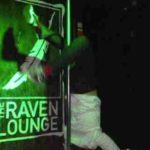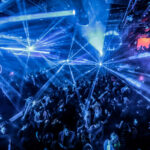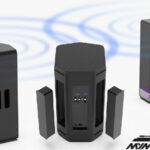What does a DJ do?
Disc jockeys (DJs) present, mix and link recorded music for a live or radio audience. They use a wide variety of equipment varying in sophistication including turntables and mixers; tape decks; amplifiers and headphones; graphic equalisers; lighting effects; and multimedia and sound processors.
There are three main types of DJ:
Radio DJs are broadcast presenters that work at radio stations providing links between music tracks. Links are filled with, for example:
- conversation, anecdotes or jokes
- phone-ins
- adverts
- news, weather and traffic items
- interviews.
Radio DJs usually present a programme that reflects their personality and musical interests. They use mixing techniques, improvisation and work to a tight timing schedule. For more detailed information on radio work see TV/Radio Presenter.
Club DJs mix music and use other techniques to create a performance for a dance audience. They need to be aware of the venue’s music policy and their clientele. Techniques they may use include:
- pitch control
- scratching
- drop and MP3 mixing
- cross fading
- beat matching and juggling
- effects processing
- sampling and sequencing.
Mobile DJs provide musical entertainment at weddings, parties and other social events. They try to create a fun atmosphere by being the Master of Ceremonies (MC). They normally provide their own records (vinyl and CDs) and equipment.
Depending on the role, DJs may be required to market and promote themselves.
What’s the working environment like working as a DJ?
DJs work irregular and varied hours depending on their time slot, for example a radio DJ may work a morning show or a club DJ will often work into the early hours of the morning. DJs are likely to spend some time preparing a play list, setting up equipment and travelling to venues. The working environment varies. Mobile DJs might work in village halls, pubs, public buildings, or outdoors. Radio DJs may work in air-conditioned studios or occasionally at outdoor events. Club DJs normally work in hot, loud and smoky environments.
Some DJs work on a part-time or casual basis combining DJing with another source of income.
What does it take to become a DJ?
To be a DJ, you should:
- have a keen and well-developed interest in music
- be technically competent with your equipment
- have a confident and outgoing personality
- have some understanding of sound engineering and music technology
- be a clear and articulate communicator, particularly for radio
- have a good sense of rhythm
- be creative and enthusiastic about music
- have good timing and co-ordination
- have good business skills
- be able to work calmly under pressure and organise your own workload.
DJ Career Opportunities
Most club, radio and mobile DJs are either self-employed or are offered freelance contracts. It is important that they build their reputation, are successful networkers and are committed to self-promotion. Occasionally, DJs are employed by clubs and the hospitality industry.
Successful DJs can find work opening events and giving personal appearances. There are also increasingly good opportunities for experienced club DJs to work abroad.
It is possible for DJs to move into related roles in music production, music retailing and recording. They could become club promoters, agents, remix producers, record distributors or even musical artists in their own right.








0 Replies to “How to become a DJ”